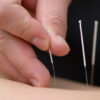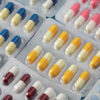Have you been hearing all the rumors about bad side effects from the HPV vaccine? It’s the vaccination for cervical cancer, genital warts and more. If you’re a parent in the US, you have probably heard them. The rate of HPV vaccinations in the US is lagging far behind other countries and studies show it’s because many parents are unconvinced that this vaccination is safe.
Our family doctor suggested strongly that our teenage son get the vaccination (approved for boys in 2011). Before I agreed, I turned to the Internet. In scanning web sites and news articles I have found rumors of deaths, paralyzed girls, long-lasting numbness and depression. However, the few credible sources available use anecdotal stories with almost no statistics to support the claims.
More than 56 million doses, mostly to teenage girls, have been administered in the US alone. (The vaccine is given in 3 doses, so that number of girls vaccinated should be 1/3 of 56 million. However, a significant number of US girls have received only one or two of the doses required for full protection. That makes it difficult to determine how many girls were vaccinated.) If there is any truth to the rumors, the fall-out could be staggering. But the CDC and my own family doctor keep telling me that the rumors are false. Of course there could be (and will be) some adverse reactions to any vaccination or inoculation, but this one is as safe as it can be, I am told.
Just as I was about to say yes, the Japanese government took the dramatic step of withdrawing its recommendation for the HPV vaccine (June 14, 2013). The government will “implement investigations.” Presumably it is seeking to either prove the vaccination caused adverse effects or that it didn’t. The Japanese government stopped far short of pulling it from the market. If requested, the vaccine will still be given free of charge. But the health care provider will be required to inform the patient (and parents if underage) that the government does not recommend the vaccination.
Japan only approved the HPV vaccines in 2011, several years after the US and WHO (World Health Organization) approved them. MedScape reports that Japan patients have suffered a rate of 12.8 serious cases of adverse events per 1 million inoculations. Compare that to 0.9 serious adverse events per million for influenza inoculations and 2.1 serious adverse events for polio (all in Japan’s population). The total number of HPV vaccines in Japan to date are 3.28 million with 1,968 reports of possible side effects.
Japan suspended recommendation of an encephalitis vaccine in 2005. Precnar and ActHIB vaccines were also suspended for a short period of time in 2011.
The Japanese decision was in stark contrast with the US government’s stance. Since the announcement from Japan, we have been bombarded in the media with stories about the success of the HPV vaccination – a CDC study showed that HPV strains covered by the vaccine were down 56% in 14 -19-year-old girls in the first 4 years that the vaccine was available.
CDC Director Tom Frieden says: “Our low vaccination rates represent 50,000 preventable tragedies — 50,000 girls alive today will develop cervical cancer over their lifetime that would have been prevented if we reach 80% vaccination rates,” Frieden said in a statement. “For every year we delay in doing so, another 4,400 girls will develop cervical cancer in their lifetimes.” This is a powerful recommendation for the vaccine.
I looked further for information on adverse events. I found this release from the CDC dated April 2010. At that time, 23 million doses of the HPV vaccine had been administered with 12,424 reports of adverse events, 772 (6%) described as serious with reports of 32 deaths (from June 2006 through December 2008). From the article: “The 32 death reports were reviewed and there was no common pattern to the deaths that would suggest they were caused by the vaccine. In cases where there was an autopsy, death certificate, or medical records, the cause of death could be explained by factors other than the vaccine. Some causes of death determined to date include diabetes, viral illness, illicit drug use, and heart failure.”
In a news conference on June 19, 2013 a representative of the CDC noted a total number of 42 deaths that were reported that might be related to the vaccine. No causation between the vaccine and the deaths has been established.
I still have not made up my mind about the vaccination. Certainly my son won’t contract cervical cancer, but it guards against anal and penile cancers (very rare) and genital warts (not so rare). It’s not insignificant to realize that a vaccination is only effective if nearly everyone is vaccinated so there are no carriers. If he were a girl, I’d probably say yes. But is the benefit to him (personally and to society) enough to warrant the risk, whatever the risk is?
What did you decide? Tell me your thoughts on our Facebook page. And don’t forget to “like” us while you are there!
Articles:
Asahi Shimbun, Health ministry withdraws recommendation for cervical cancer vaccine
CBS News, Gardasil research speaks out
Centers for Disease Control and Prevention (CDC) Press Briefing Transcript
CDC paper: HPV Vaccine information for clinicians – fact sheet
FierceVaccines, Japan withdraws recommendation of Merck and GSK HPV jabs
Hormones Matter, Gardasil autopsies reveal cerebral vasculitis
Japan Times, HPV vaccine raises questions
MedPage Today, Big drop in HPV, vaccine gets credit
MedScape Today: Japan withdraws HPV vaccine recommendation for girls
Pharmalot, Citing side effects, Japan pulls recommendations for HPV vaccines
SaneVax, Inc., HPV vaccines: Japan leads the way
The Healthy Home Economist, Gardasil shocker: Japan withdraws support for HPV Vaccine






